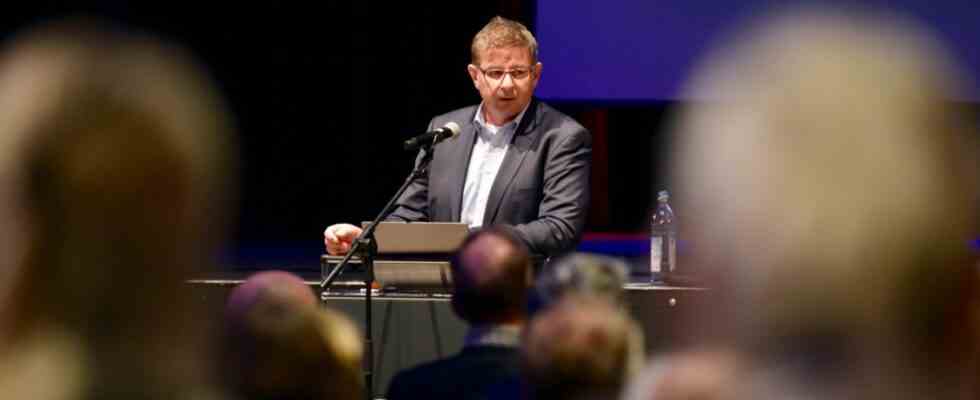Finding confirmation can also be quite nice – at least that’s how it felt for some visitors to the Ebersberg town hall meeting on Friday evening. There the experts led by Klaus Schosser and the Office for Transport Planning and Spatial Planning presented the first results of their investigations. A lot of it – you could read that from the spontaneous applause of some of the 120 listeners on some points – some traffic-plagued Ebersbergers should have liked to hear. But those who paid closer attention could also hear the swan song of a transport project that was desired by many.
Not surprisingly, the experts found that Eberhardstrasse, i.e. State Road 2080, is very busy. The traffic census showed a figure of around 15,000 vehicles per day, which according to the traffic planners was quite high for a two-lane road. Also not new, but now official, is the knowledge of the experts that it is not easy for cyclists and pedestrians everywhere in the district town and that this is particularly true at the district court and in front of the supermarkets. It should also come as no surprise in Ebersberg that the southwestern part of the city is poorly connected to the local supply for anyone without a car – not least because of this, one hopes to get a second station in this area when the railway is expanded.
Through traffic accounts for only a small portion of car journeys in the city
On the other hand, what is new, at least as a fact backed up with data, are the findings on the composition of traffic. In September there was a traffic census, which examined, among other things, how high the proportions of through traffic and truck traffic were. The result is likely to have sobered everyone hoping for a bypass road to be built soon: the majority of car journeys either start or end in Ebersberg – some even have both in the district town. The proportion of truck traffic is also less than expected: only about five percent of the vehicles on Ebersberg’s roads fall into this category, and that includes buses.
The trucks in Ebersberg, here on Eberhardstrasse, are striking. But they make up only a small part of traffic.
(Photo: Christian Endt)
The planners have not yet derived any concrete consequences from the data collected so far. This should only happen when the survey has been fully evaluated. From this, the experts hope to gain further insights into the mobility behavior of the Ebersbergers, who had evidently eagerly participated. The return was very high, it said at the meeting on Friday evening.
Perhaps in a few years warm water will flow from Vaterstetten to Ebersberg
In addition, Mayor Ulrich Proske (independent) informed about the financial situation of the city – currently good, but in the near future one will probably have to save more -, ongoing projects, such as the indoor pool and forest sports park, both of which should be ready next spring, as well as the expansion of Broadband and mobile phone coverage in the localities.
What the city is doing in terms of climate protection and energy saving was also a topic, such as the conversion of the street lamps and the planned construction of a local heating network. One of the questions from the audience was whether this could also be operated with geothermal energy in the future. In principle yes, so the mayor’s answer, but geothermal drilling in Ebersberg itself is not worthwhile because of the low water temperatures. However, there are considerations to join the Vaterstetten geothermal project. To do this, however, it would first have to be clarified whether the construction of such a long line would be economical and whether drilling in the larger community could actually produce enough warm water to supply Ebersberg.
The city should create a concept of how more citizen participation is possible
There were also questions about the status of two major construction projects in the city: the Friedenseiche VIII residential area and the redesign of the wood brewery site. According to Proske, the former is still being negotiated with landowners for development, the latter depends on whether the city and investor can someday agree on how the actual Bäumer brewery building will be used in the future. The mayor also made it clear that the city council does not agree with the ideas of the investor, but also does not want to be pushed: “As long as we don’t get together, it will take time.”
The meeting also approved one motion. Kai Platz wished for more citizen participation in Ebersberg, also and especially from children and young people. In addition – according to the application, which most of those present agreed – the city should create a corresponding concept on how this can be achieved.

